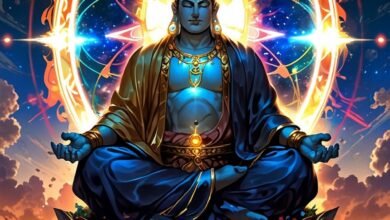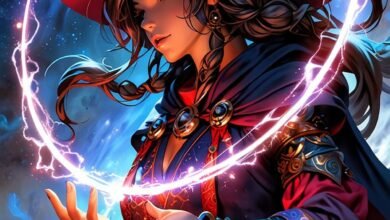Do Cows Have Emotion | Sadhguru
Sadhguru: They lived in our homes along with us. So, there was an intimate relationship. This cow just came and stood in front of the house. For about six days, never ate anything, drank anything and died right there, after six days. Now, see the problem is, today you move into an apartment, which is on your tenth floor, and you are far removed from the earth. And you have no sense of how things work on the land. We come from a pastoral culture, where our wealth was always measured in terms of how many herds of cattle do you have. You just look back at the time of Mahabharat and other thing, they are always talking about herds of cattle. How many cattle did you have? This is the wealth. Why this was so is, because we are a tropical country and we depend on monsoons, when the rains fail, those who had cows, their children survived; those who do not have cows, their children died. This is a simple wisdom that we came to. So, an… an animal which gave us milk, which saved our children's lives, we treated it as sacred to our lives. Not only that, cows did not live in a separate cattle farm somewhere. They lived in our homes, along with us. So, there was an intimate relationship. So intimate, I must tell you this. One of my grand-aunts, who… who had a cow – all cows had names at one time, okay (Laughs)? This cow was called Lakshmi, very dear to her. At the age of eighty-four or eighty-five, my grand-aunt passed away. This cow just came and stood in front of the house. For about six days, never ate anything, drank anything and died right there, after six days. So, that's the level of emotion that a cow is capable of. I have personally seen. See, when I was growing up, my grandmother always showing a particular cow and keep telling me that, "You are drinking the milk of this cow. This is your second mother." They actually openly telling me (Applause), "Suppose your mother dies…" They… I am just a two year old kid. These are days you never supposed to utter death… the word, death, but those days, because mothers could die. So, my grandmother tell me, "Suppose your mother dies, this is your mother. She is the one who is nourishing you." Every day, I am told this. So, everyday I am supposed to go and at least touch her and play with her for a few minutes a day. This was a part of our growing up. So, naturally there was a huge emotion towards the animal, and I have personally seen that if you had… develop a certain intimacy with a cow, suppose you are going through some grief, some turmoil within yourself – you need not be in the presence of the cow, you are somewhere else – the cow will shed tears for you. So, because it has human emotions, we said killing a cow amounts to murder. Eating a cow amounts to cannibalism; this is how it was seen in the past. Well, we can't go back to that time anymore. We are (Laughs)… We will go into the deepest oceans and at the bottom of the ocean, what is there, we will pick it up and eat it up. We've… We have learnt how to exploit everything on the planet. But, in an agricultural nation… I want you to understand this. If you don't know this Sir already, let me tell you this – twenty-five percent of India is turning into a desert in the next ten to fifteen years' time. How desertification happens means, it's just this – In normal agricultural soil, the minimum organic content that has to be there to call soil, "soil," is three to six percent. Three percent is the most minimum. But today, in many states like Punjab, Haryana, Marathwada, some parts of Tamil Nadu and Karnataka and Andhra Pradesh, the organic content has gone down to .05 percent. That means, in the next three to five years, this will become sand. If you remove the organic content from the soil, soil will become sand. If your soil becomes sand, then we say, "Your nation is a desert," isn't it? How is this going away (Laughs)? I don't know, young educated people should be thinking about these things, for unfortunately, we're not doing this. See, you take one acre of land. If you take one acre of land, if you grow, let us say, two tons of some crop. What you have removed is two tons of topsoil. So, if you want to put back organic content into the soil, there are only two ways. Leaves from the trees and animal waste. Trees are already gone long time ago. Animals, you want to eat it up. How will you preserve the soil? If our soil turns into a desert (Applause), how are people going to live? With 1.3 billion population, very concentrated population, if you do not put the leaves of the tree and the animal waste back into the land, you will finish the nation. A nation which has a twelve month cropping system and which has agricultural history of eight to ten thousand years – longest agricultural history on the planet. Now, if you take away the soil and turn it into sand, is it a great thing? You have to somehow preserve it. At some point (Laughs), at some point in near future, we have to come to this – If you have ten acres of land, you must have this many trees and this many animals. This will become mandatory. If it doesn't become mandatory, there will be no soil left in the nation.



